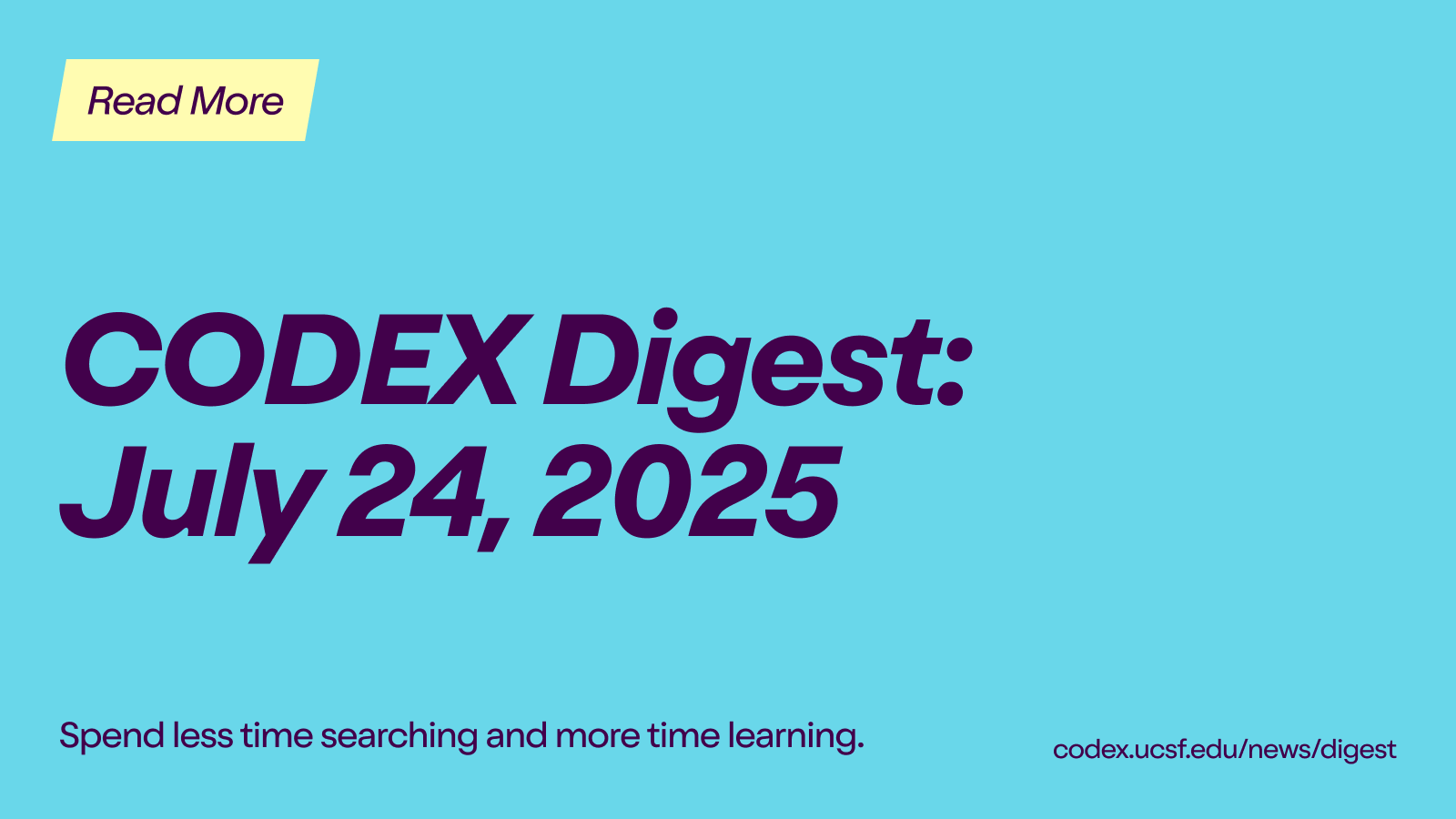CODEX Digest - 7.24.25
Want this delivered straight to your inbox every Thursday? Subscribe now.
This week’s picks feature a range of media about diagnostic excellence across the healthcare system, from medical sample collection to the safety of AI implementation. Highlights include a preprint evaluating a custom GPT system for addressing diagnostic challenges, an analysis of malpractice claims, and a review of deepfakes in medical imaging.
Here are this week's must-reads:
Titles link to the PubMed record or free-to-access sites with full text availability.
Diagnostic challenges and patient safety: the critical role of accuracy - a systematic review.
Alharbi TAF, Rababa M, Alsuwayl H, et al. J Multidiscip Healthc. 2025;18:3051-3064.
The correct diagnosis has an essential role in reducing patient harm. This review identifies the impact diagnostic accuracy has on treatment, safety, and overuse of procedures. It found technologies, training, and standardization to be effective strategies to support diagnostic excellence.
AJR Podcast Series on Diagnostic Excellence and Error.
Deng F, ed. AJR Am J Roentgenol. July 2024-June 2025.
Diagnostic excellence benefits from insights and skills developed across the healthcare system. This podcast collection focuses on radiologists and pathologists. Sessions cover concepts such as overdiagnosis, second victims, and AI. The recordings are available on the American Roentgen Ray Society website.
Machine Learning in Medical Diagnosis: A Framework for a Normative Evaluation of Benefits and Risks. (purchase required)
Dias Duran LD. Springer Berlin Heidelberg; 2025.
The safety of AI implementation in healthcare is a persistent concern. The book presents AI as a sociotechnical system and recommends considering all user experiences for AI tools to effectively support diagnosis. The assessment of both conflicting and synergistic situational AI properties is an essential implementation approach.
Everett SS, Bunning BJ, Jain P, et al. medRxiv. Epub 2025 Jun 8.
AI holds promise as a collaborative rather than static tool. This preprint of a randomized controlled trial examined how useful a custom GPT system could be when used by clinicians to address diagnostic challenges. Two approaches were evaluated: AI giving its opinion first or responding after the clinician's input. In both cases, clinicians working with the AI did better than those using standard tools. The results were similar across both workflows and compared to the AI working alone. The results indicate that collaborative AI systems can enhance diagnosis when infused with clinician expertise.
Jacobse S, Rijkels-Otters H, Eikens-Jansen M, et al. Eur J Gen Pract. 2025;31(1):2501302.
Shared decision-making (SDM) is a valuable patient engagement mechanism that can be challenging in diagnostic situations. This study examined closed malpractice claims to determine reasons for complaints and aspects of the diagnostic process that could be enhanced through SDM. Testing, timeliness, and follow-up were identified as areas for improvement, with recommendations made to create training that advances physician use of SDM.
John GK, Favaloro EJ, Austin S, et al. Clin Chem Lab Med. 2025;63(7):1243-1259.
Medical sample collection, handling, and transportation failures can have substantial impacts on diagnostic excellence. The review examines pre-analytical errors, outlines healthcare workers' roles in improving processes, and notes that information technology could enhance specimen management reliability if supported by proper standards and education.
A meta-analysis of the diagnostic test accuracy of artificial intelligence for predicting emergency department revisits. (subscription required)
Kuo K-M, Wu W-S, Chang CS. J Med Syst. 2025;49(1):81.
Patients returning to the emergency department shortly after an initial visit serve as a marker for possible diagnostic and care performance issues. This systematic review explores the reliability of AI to forecast the potential for revisits using test accuracy results. The analysis found AI models to underperform when identifying patients that are at risk to return to emergency care.
Pradepan P, Gladston RS, Juby GK. Appl Comput Sci. 2025;21(2):139-153.
Digitally altered images represent a threat throughout society including healthcare. This review examines deepfakes in CT scans and X-ray technologies. The authors discuss how manipulated images are created, legal and regulatory concerns, misdiagnosis, and organizational risks. The potential and limits of current and future detection methods are reviewed.
Sloan M, Bosley M, Gordon C, et al. Rheumatology (Oxford). 2025;64(6):3842-3853.
Misdiagnosis affects how patients feel about themselves, their health, and the healthcare system. This study examined patient impact of psychosomatic or psychiatric diagnostic error. The patients had worse mental health overall and were less satisfied with their medical care compared to those who did not report such misdiagnoses. They were more likely to avoid medical care or downplay their symptoms. Clinicians should be aware of these lasting effects and offer support to help patients recover trust and well-being.
Diagnostic errors in patients admitted directly from new outpatient visits. (subscription required)
Watanabe Y, Miyagami T, Shimizu T, et al. Diagnosis (Berl). 2025;12(2):223-231.
Complex patient conditions associated with unplanned hospitalization create conditions conducive to diagnostic error. This study at a Japanese academic hospital identified factors contributing to diagnostic errors in new clinic patients, including involvement of less-experienced residents and patients exhibiting a wide range of symptoms. Cognitive biases related to concurrent diagnoses and unusual symptom presentation were determined to contribute to mistakes.
About the CODEX Digest
Stay current with the CODEX Digest, which cuts through the noise to bring you a list of recent must-read publications handpicked by the Learning Hub team. Each edition features timely, relevant, and impactful journal articles, books, reports, studies, reviews, and more selected from the broader CODEX Collection—so you can spend less time searching and more time learning.
Get the latest in diagnostic excellence, curated and delivered straight to your inbox every week:
See past digests here.

